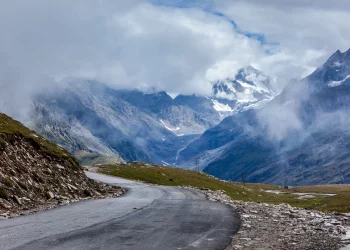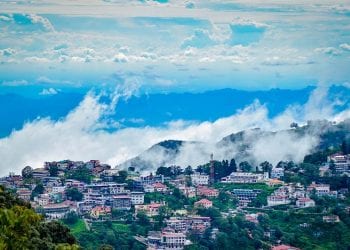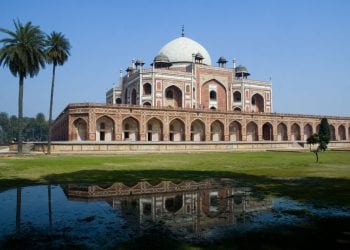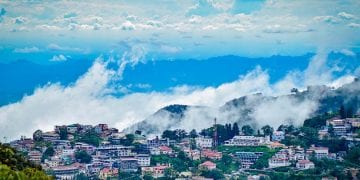Raipur – A Touch of Old and New
The capital of Chhattisgarh state, Raipur is a developing city featuring a blend of the traditional tribal community culture and a modern urban population. With river Mahanadi flowing to its east, the city of Raipur is located near the delta plain referred to as India’s ‘rice bowl’. Traditionally, its economy was based on agricultural processing and saw milling. In the heart of the city close to the famous Shastri Chowk, lies the charming Nagar Ghadi – a singing clock, which plays Chhattisgarhi folk music every hour.
Top 13 Places To Visit In Raipur
- Purkhouti Muktangan
- Jatmai Temple
- Mahant Ghasidas Memorial Museum
- Energy Park or Urja Park and
- Kevalya Dham
- Nandanvan Zoo Bus Safarif
- MM Fun City
- Shadani Darbar
- Mahamaya Temple
- Bhand Dewal
- Dudhadhari Math Temple
- Marine Drive and Telibandha Talab
- Budha Talab or Swami Vivekananda Sarovar
1. Purkhouti Muktangan
Purkhouti means ‘ancestral heritage’, and Muktangan stands for mukt meaning ‘free’ and aangan meaning ‘courtyard’. The best places to see in Raipur, this open-to-sky park museum showcases the life and times of Chhattisgarhi tribal communities. Folk stories are depicted on the boundary walls with godna or ancient tattoos. This unique aboriginal art gallery depicts rural artistic expression in its natural element, through masks of different expressions, carved tree trunks, walls pasted with tribal jewellery, window lattices shaped with clay figures, and a water tank painted with murals. Life-sized models of tribal people in their traditional attires, dance forms, or warrior postures – are exhibited in an open field, along with many handicrafts and artefacts made of ancient wax techniques, Bastar’s black metal, terracotta, or Dokra figurines. On display are several miniature replicas of Chhattisgarhi tourist sites like Chitrakote Waterfalls, Kanger National Park, and temples of Bhoram Dev, Rudra Shiva, and Mata Danteshwari.
Timings: 8:00 AM to 6:00 PM
Entry Fee: INR 5 (Adult) INR 2 (Child)
2. Jatmai Temple
Like a shot from a mythological film, set amidst thick forests, a waterfall cascades along flat rocks – gushing past the grand temple next to it. Carved out of granite, this Jain temple is situated in Gariyaband town, one of the sacred places in India. The complex features many shikharas (towers). The temple is dedicated to Mata Jatmai, whose stone idol is housed in the sanctum sanctorum. Murals of mythological characters are painted on the main entrance. An architectural wonder, the temple is even more colourful during the Navaratri Festival celebrations. The mesmerizing Ghatarani Waterfall situated nearby is also a popular picnic and tourist spot.
Timings: 5:00 AM to 7:00 PM
Entry Fee: Free
3. Mahant Ghasidas Memorial Museum
Established in 1875 by King Mahant Ghasidas, this archaeological museum is one of the finest places to see in Raipur. The artefacts include weapons, pottery, jewellery, paintings, inscriptions, and a vast collection of coins from the Gupta, Kushan, Mughal, Maratha, and British era. Many discoveries from the Sirpur Group of Monuments excavation are displayed here. Some 6-century statues, especially the statues of Rudra, Guptayugin, and Bodhisattva are popular attractions. The art of ancient writing on stone and thin copper sheets are also displayed. A taxidermy section has exhibits of over a hundred animals. The tribal section showcases the textiles, costumes, jewellery, and musical instruments belonging to various local communities. A collection of old audio cassettes of Chhattisgarhi Folk music is preserved in the music library.
Timings: 10:00 AM to 5:00 PM (Monday closed)
Entry Fee: Free
4. Energy Park or Urja Park
A wonderful getaway for children, the Energy Park is a sprawling theme park – a perfect blend of knowledge and fun. The unique feature of this park is that it is entirely run on solar energy. Vast gardens exhibit a diverse flora and fauna, ideal for picnicking or simply resting. A spectacular musical fountain adds to the beauty of the site. Tourists can enjoy boating in the sparkling lake and afterwards head to the food stalls to savour delicious refreshments. The park has a conceptual science centre, which educates about the different forms of renewable energy and their uses. A toy train tours around the park through its natural beauty. Toddlers can enjoy riding on solar operated toy cars.
Timings: 10:00 AM to 6:00 PM
Entry Fee: Free
5. Kevalya Dham
Kevalya Dham is a famous Jain temple and religious centre. Made of white marble, the magnificent architecture of this temple makes it the finest tourist attractions in Raipur. The vast complex houses 26 small and big temples. All the idols of the 24 Tirthankaras (Jain teachers) are displayed in the small temples. An idol of the presiding deity, Rishabhdev, is housed in the main temple. The walls feature a detailed description of the Shatrunjay Mahatirth. The temple has a dharamshala (rest house) equipped with all major facilities. Typical of major Jain temples, this temple too has a dadabari (type of Jain shrine) located near it. A unique ritual of this temple is the daily auction for pooja (prayers) – the highest bidder gets to perform the main pooja of the day.
Timings: 7:00 AM to 8:00 PM
Entry Fee: Free
6. Nandanvan Zoo Bus Safari
Nandanvan is a recently opened one-of-a-kind man-made zoo often credited as the largest planted jungle in Asia. Still in the development stage, at present, the zoo offers four bus safaris namely the herbivore, bear, lion, and tiger safaris. Almost 55000 saplings were planted to create a green belt, which runs along the safari and service road. Buses are not allowed to halt during the journey. In the herbivore safari, you can spot chital, blackbucks, sambhar, barking deer, and blue bull. Several migratory bird species are spotted at the Khandwa Reservoir water body. This zoo is one of the best places to visit in Raipur for its stunning landscapes, indigenous plants, and exotic wildlife in its natural habitat.
Timings: 10:00 AM to 4:00 PM
Entry Fee: INR 300 (AC Bus) INR 200 (Non AC Bus)
7. MM Fun City
One of the best places to visit in Raipur includes Chhattisgarh’s largest water amusement park, MM Fun City. It offers a range of fun water activities for kids, families, and the elderly. Some water slides – high vertigo drops, wavy vertigo drops, and passing through tunnels – are thrilling. In some cases, a less daring version of the same type of slide is also available. One can feel the harmony of different tides of waves produced in the ‘wave pool’. The ‘family pool’ is for spending the least risky, most laidback time in the water. And to dance to live music under the rain, head to the ‘rain dance’ zone. The ‘kids zone’ is equipped with video games, indoor games, and a trampoline. The park has a restaurant that serves a variety of cuisines, a banquet hall for events and some rooms to provide accommodation to the visitors.
Timings: 10:30 AM to 7:00 PM (Mon-Fri) 10:30 AM to 8:00 PM (Sat and Sun)
Entry Fee: Single Person with Family: INR 400 (Monday – Friday) INR 450 (Saturday, Sunday)
Free for children below 3
8. Shadani Darbar
A famous religious temple of the Sindhi community, Shadani Darbar was built in 1969 and named after Sri Shadaramji Saheb. The temple is surrounded by a vast garden where religious statues and idols sit between an enchanting musical fountain. The main hall is huge, with an idol of the presiding deity, Dhuni Saheb. The towering walls are exquisitely engraved with inscriptions and images of Hindu Gods. The religious song Dukh Bhanjan Dhuni is sung every day at the temple.
Timings: 5:00 AM to 8:00 PM
Entry Fee: Free
9. Mahamaya Temple
An archaeological wonder, a historic monument, and a religious centre – the Mahamaya Temple of Raipur is all rolled into one. This 11-century Hindu temple is nestled in an old fort on the banks of river Kharun amidst dense forests. Featuring Nagar architectural style, the structure is surrounded by thick walls and supported by several heavy stone columns. Many statues and motifs in the temple are remnants from the ruins of older temples, especially some Jain temples. The smaller temples within the complex are dedicated to Mahakali, Shiva, Bhadrakali, Hanuman, and Bhairav. The sanctum sanctorum contains a red stone dual idol of the presiding deity, goddess Mahamaya, who is represented by Mahishasura Mardhini in the foreground and Saraswati in the background.
Timings: 6:00 AM to 8:00 PM
Entry Fee: Free
10. Bhand Dewal Temple
Bhand Dewal is the oldest temple situated in Arang, the ‘Temple Town of Chhattisgarh’. This 9-century state protected monument was built under the Haihaya Dynasty. While the outer campus of the temple complex was probably damaged, its ruins are equally captivating. Built-in Bhumija style of Nagar architecture, the main temple is 5-storeyed and star-shaped. Its heavy plinth is exquisitely ornated. Fine carvings of demons, Gods, and erotic art are engraved on the walls. The sanctum sanctorum contains three beautiful statues of Jain tirthankaras.
Timings: 6:00 AM to 7:30 PM
Entry Fee: Free
11. Dudhadhari Math Temple
The name Dudhadhari is derived from a combination of dudh for ‘milk’ and aahari for ‘consumer’. The legend goes that a cow started leaking milk on an idol erected by sage Balbhadra Dasji, who then started consuming this milk and surviving only on it. The complex of this historical temple has three sections. The Balaji temple was consecrated by a Bhosle king in 1610 AD. The Balaji idol has some shaligrams (symbols of Vishnu) near it, and the walls are adorned with images of Ram. The unique layout of Sankatmochan Hanuman Temple depicts Hanuman’s body in one direction and his face turned backwards in order to see Lord Balaji. The Rampanchayatan Temple is carved with scenes from the epics Ramayana and Mahabharata.
Timings: 6:00 AM to 9:00 PM
Entry Fee: Free
12. Marine Drive and Telibandha Talab
The picturesque stretch of Marine Drive runs along the beautiful Telibandha Talab Lake on one side, and an open-air art gallery on another. Amongst the most picturesque places to visit in Raipur, this brick layered pathway is ideal for strolling, biking, or jogging. Walls along the pathway are painted with striking graffiti, and brightly coloured small houses lie in the backdrop. A 269-feet tall flag-pole, India’s fifth highest, stands tall amidst the lake. The distinct Mor Raipur (My Raipur) inscription statue is a popular spot for photography. The course of the stretch is also equipped with Wi-Fi, clean toilets, and food stalls. A health-awareness program called Sehatmandi is regularly organized at this spot, featuring cultural events like dance forms, acrobats, and cycling.
Timings: Always Open
Entry Fee: Free
13. Budha Talab or Swami Vivekananda Sarovar

Budha Talab is one of the largest water body situated in one of the oldest settlement areas of Purani Basti in the heart of Raipur. It is believed that Swami Vivekananda used to swim in this lake during his two-year stay at Raipur. Recently, a 37-feet tall bronze statue of Vivekananda seated in lotus position was erected next to the lake. It is surrounded by a lush green garden. Betel nut trees flank both sides of the narrow pathway that runs in between the lake. Colourful fountains in the midst of the lake add to the enchanting beauty. Visitors can enjoy boating and food refreshments from the food stalls nearby. Sunset and sunrise are the best time to visit Swami Vivekananda Sarovar, one of the best tourist attractions in Raipur.
Timings: 6:00 AM to 9:00 AM, 3:00 PM to 8:00 PM
Entry Fee: Free
The International Cricket Stadium of Raipur is India’s second-largest. The Victorian style Town Hall building opened in 1887 was actually made of stones from the dilapidated Raipur Fort. The temples of Balaji, Birla, ISKON, Hatkeshwar Mahadev, and especially Banjari Mata and Rajivalochana are quite popular amongst devotees. Gandhi Udyan Park and Rajeev Smriti Van are some well-known parks within the city, while larger forests like the Barnawapara Sanctuary and Udanti Sanctuary lie nearby. Whether you are interested in adventure, heritage, wildlife, or education, Raipur has a bit of everything.
Recent Posts
Top Picks
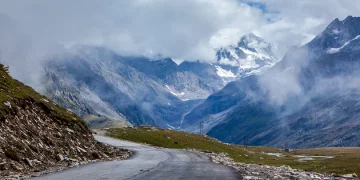
- OYO
 15 April, 2024
15 April, 2024 - Cultural Tour

- OYO
 15 April, 2024
15 April, 2024 - Cultural Tour

- OYO
 15 April, 2024
15 April, 2024 - Cultural Tour

- OYO
 15 April, 2024
15 April, 2024 - Cultural Tour

- OYO
 15 April, 2024
15 April, 2024 - Cultural Tour

Please rotate your device
Please go back to portrait mode for the best experience



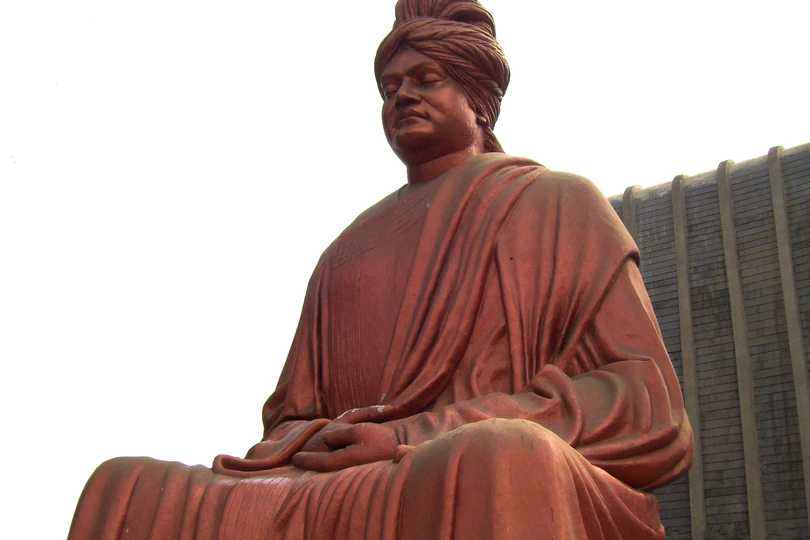

 April 15, 2024
April 15, 2024 